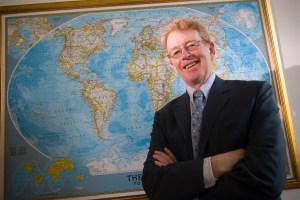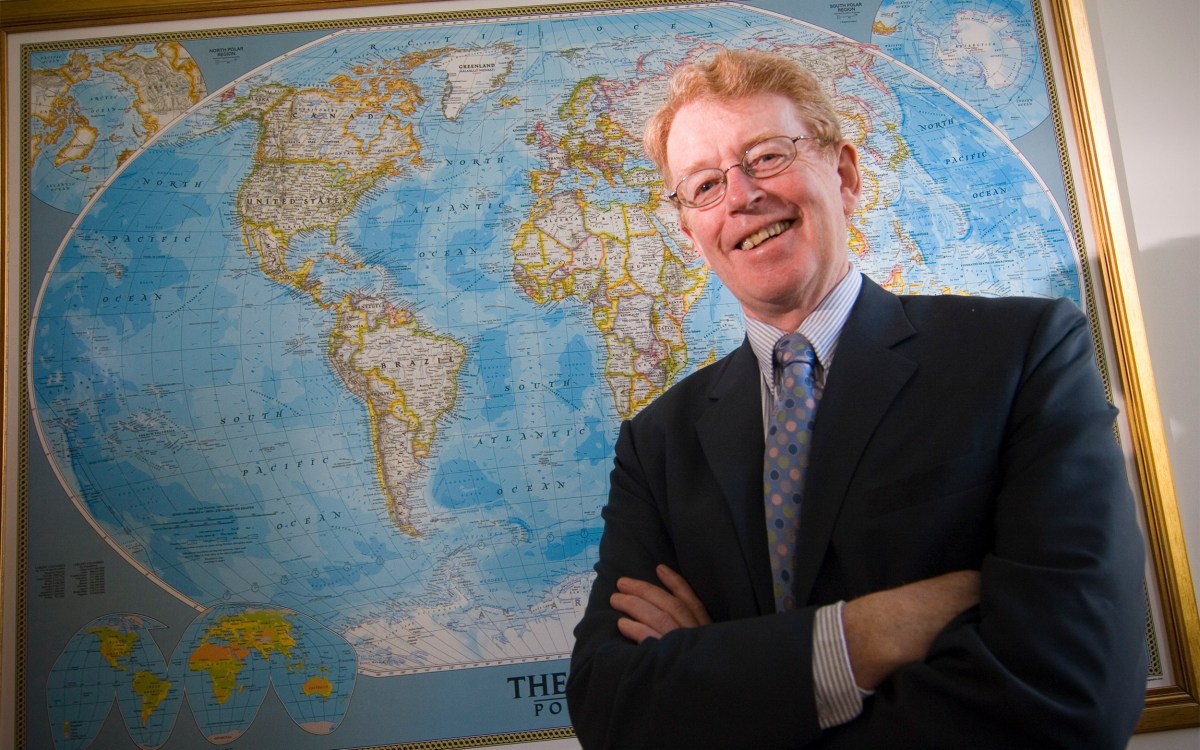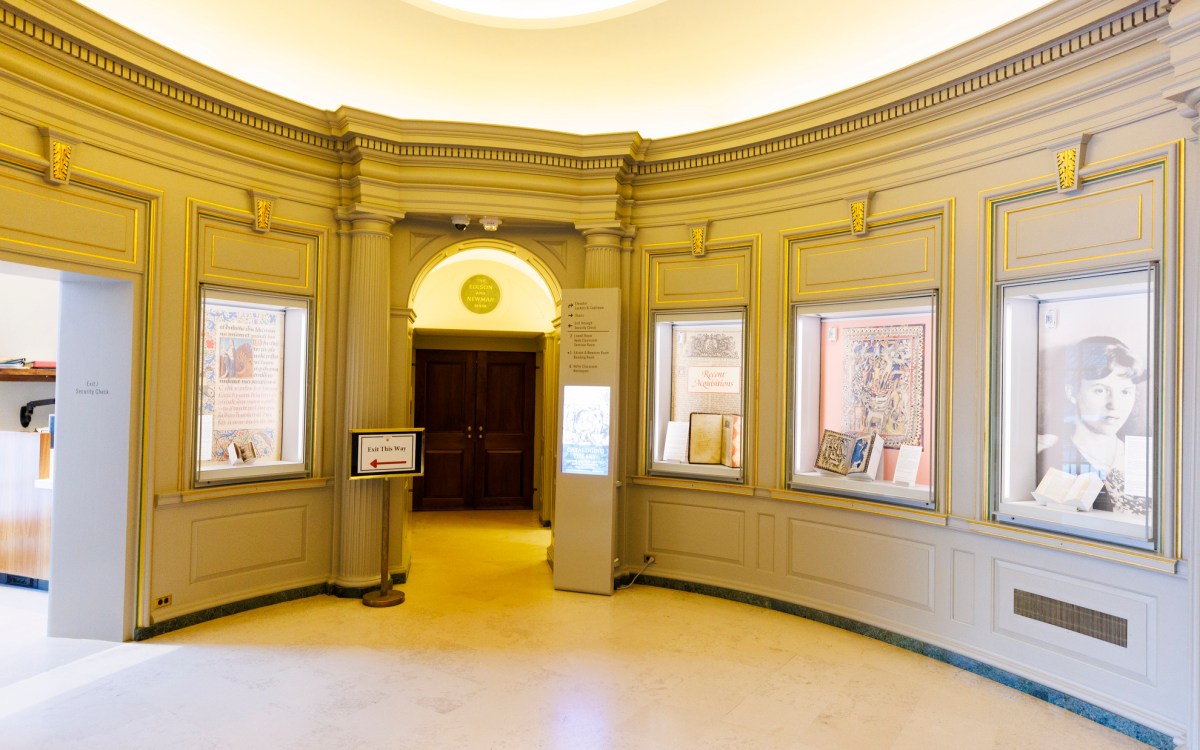Policies relating to research and other professional activities within and outside the University*
1. With the acceptance of a full-time appointment in the Faculty of Arts and Sciences, an individual makes a commitment to the University that is understood to be full-time in the most inclusive sense. Every member is expected to accord the University his or her primary professional loyalty, and to arrange outside obligations, financial interests, and activities so as not to conflict or interfere with this overriding commitment to the University.
2. At the same time, no one benefits from undue interference with the legitimate external activities of officers of instruction who fulfill their primary full-time duties – teaching at the University, conducting scholarly research under its sponsorship, and meeting the other obligations to students and colleagues that faculty must share. Indeed, the involvement of faculty members in outside professional activities, both public and private, often serves not only the participants but the University as a whole. Recognizing its inability to construct detailed rules and codes of ethics that strike the proper balance in all cases, the Faculty has chosen instead to enunciate broad guidelines on conflicts of interest and commitment and to place the onus of seeking advice on issues that might reasonably appear to pose significant conflicts on individual members. It has been, and continues to be, assumed that all faculty members will be alert to the possible effects of outside activities on the objectivity of their decisions, their obligations to the University, and the University’s responsibilities to others.
3. The areas of potential conflict may be divided into two broad categories. The first relates to conventional conflicts of interest. These include situations in which members may have opportunities: (i) to influence the University’s business decisions in ways that could lead to personal gain or give improper advantage to their associates; or (ii) to design or modify their research and teaching activities in ways that significantly and inappropriately benefit their external activities and personal finances. The second is concerned with conflicts of commitment – situations in which members’ external activities, often valuable in themselves, interfere or appear to interfere with their paramount obligations to students, colleagues, and the University. Teachers and scholars are given great freedom in scheduling their activities with the understanding that their external activities will enhance the quality of their direct contributions to the University. The University also stipulates that full-time appointees may not teach for other educational institutions or organizations or hold research appointments at other academic organizations without the approval of their Deans and others. These requirements are specified in greater detail in the Statement on Outside Activities of Holders of Academic Appointments.
4. A Standing Committee on Professional Conduct, with broad representation from the different disciplines, shall advise the Dean and individual faculty members on problems involving conflicts of interest and commitment.
5. It is assumed that minor conflicts will still be resolved primarily through individual discretion or informal administrative adjustment. It is also recognized that adequate protection for the University will frequently be derived through the traditional academic practices of scholarly publication and public disclosure of author and sponsor. However, if a member is engaged in an outside activity or has significant financial interests (personally or in association with members of his or her household or colleagues) that could reasonably appear to present significant conflict, he or she must disclose this possibility to the Chair of the Committee on Professional Conduct or a specified designee (e.g., the chair of the special subcommittee overseeing mandated federal disclosures) and, if it is deemed necessary after consultation, modify his or her activities appropriately. Whenever members have any doubts about whether an activity may involve a conflict of interest or commitment they are expected to seek such consultation. Guidance on what conflicts should be discussed or disclosed is provided in the Appendix to this statement. Leaving primary responsibility for initiating consultation and making borderline judgments with individuals conforms with collegial traditions but exposes colleagues and the institution to substantial risk. Accordingly, if the Committee finds that individuals have seriously violated these guidelines, the Dean of the Faculty may impose sanctions of appropriate severity.
6. This statement will be distributed annually to all faculty members and published in the Gazette for the information of other officers. Committee on Professional Conduct for 2000-2001 consists of the following: Gary J. Feldman (Chair), Jeffry Frieden, Richard M. Losick, Paul C. Martin, Maria M. Tatar (On Leave), and Gregory Verdine.
Appendix
In the absence of specific rules (beyond the requirement of consultation) and in light of the difficulty of applying general statements of principle to specific cases, there follows a sampling of activities and situations that may present conflicts of interest or commitment. They are divided into three categories:
A.) Activities which, unless disclosure is mandated by federal agencies or University-wide policies, are generally permissible and do not require consultation (regulations mandating disclosure of these activities also stipulate that the institution shall assess and manage the conflicts they reveal appropriately);
B.) Activities which should be discussed with the Committee Chair even though the problems they present can probably be resolved, often simply by ensuring that the appropriate authorities know all pertinent facts;
C.) Activities which should be brought to the attention of the Committee Chair and which appear to present such serious problems that the burden of demonstrating their compatibility with University policy rests with the faculty member.
Obviously, this list of examples does not include all potential problems and the separation into categories is somewhat arbitrary.
A.) ACTIVITIES WHICH ARE USUALLY PERMISSIBLE WITHOUT CONSULTATION, BUT FOR WHICH DISCLOSURE AND REVIEW (POSSIBLY RESULTING IN STEPS TO RESOLVE CONFLICTS) ARE REQUIRED WHEN DISCLOSURE IS MANDATED BY THE FEDERAL GOVERNMENT OR BY THE UNIVERSITY:
1. Acceptance of royalties for published scholarly works and other writings, and of honoraria for commissioned papers and occasional lectures. (Some federal agencies mandate the disclosure of honoraria from for-profit organizations that exceed a specified threshold.)
2. Service as a consultant to outside organizations, provided that the time and energy devoted to the task is not excessive and the arrangement in no way inhibits publication of research results obtained within the University. (Some federal agencies mandate the disclosure of consultancies for which compensation exceeds a specified threshold.) Paid consulting for other educational institutions or educational organizations requires prior approval by the Dean and the Corporation.
3. Service on the boards and committees of organizations so long as it does not distract unduly from University obligations. (Some federal agencies mandate disclosure of payments from for-profit organizations that exceed a specified threshold.)
B.) ACTIVITIES THAT SHOULD BE DISCUSSED WITH THE CHAIR OF THE COMMITTEE EVEN THOUGH NO IRRECONCILABLE CONFLICT OF INTEREST OR COMMITMENT IS LIKELY TO BE INVOLVED:
1. Relationships that might enable a member to influence Harvard’s dealings with an outside organization in ways leading to personal gain or to improper advantage for anyone. For example, a member could have a financial interest in an enterprise with which the University does business and be in a position to influence relevant business decisions. Ordinarily, such problems can be resolved by full disclosure and by making arrangements that clearly exclude that member from participating in the decisions.
2. Situations in which the time or creative energy a member devotes to extramural activities appears large enough to compromise the amount or quality of his or her participation in the instructional, scholarly, and administrative work of the University itself. The guideline applicable to faculty members, as defined in the Fifth Statute, is that during the academic year (which extends through the summer for those who receive extra summer salary) no more than 20% of one’s total professional effort may be directed to outside work.
3. Activities (research projects, conferences, teaching programs, consulting agreements, etc.) that faculty members wish to undertake on an individual basis: (a) that involve or might reasonably be perceived to involve the institution, however slightly, and (b) that violate or might reasonably be perceived to violate any of the principles governing research supported by funds administered through the University (see Principles Governing Research at Harvard and Guidelines for Research Projects Undertaken in Cooperation with Industry) insofar as these principles are relevant to individual behavior.
4. Situations in which a member directs students into a research area from which the member hopes to realize financial gain. The difficulty, in such circumstances, of making an objective independent judgment about the student’s scholarly best interest is obvious.
C.) ACTIVITIES THAT SEEM LIKELY TO PRESENT AN UNACCEPTABLE CONFLICT OF INTEREST OR COMMITMENT, AND THAT MUST BE DISCUSSED WITH THE CHAIR OF THE COMMITTEE:
1. Situations in which the individual assumes executive responsibilities for an outside organization that might seriously divert his or her attention from University duties, or create other conflicts of loyalty. (Individuals should consult the Chair of the Committee before accepting any outside management position.)
2. Use for personal profit of unpublished information emanating from University research or other confidential University sources, or assisting an outside organization by giving it exclusive access to such information; or consulting under arrangements that impose obligations that conflict with University patent policy or with the institution’s obligations to research sponsors.
3. Circumstances in which a substantial body of research that could and ordinarily would be carried on within the University is conducted elsewhere to the disadvantage of the University and its legitimate interests.
4. Any activity (research project, conference, teaching program, consulting agreement, etc.) that a faculty member may wish to undertake on an individual basis: (a) that involves or appears to involve the institution significantly (for example, through the use of its resources or facilities, or the participation of colleagues, students, and staff, etc.); and (b) that violates any of the principles governing research supported by funds administered through the University (see Principles Governing Research at Harvard and Guidelines for Research Projects Undertaken in Cooperation with Industry) insofar as these principles are relevant to individual behavior. (In particular, members may not give other organizations the right to censor research any part of which is performed under Harvard auspices.)
* As voted by the President and Fellows of Harvard College March 1, 1982, amended on July 25, 1987; as subsequently amended by votes of the Faculty of Arts and Sciences on Oct. 29, 1987, and May 2, 1995; and as amended by vote of the Faculty Council on Nov. 15, 2000.




